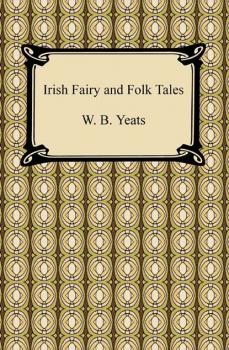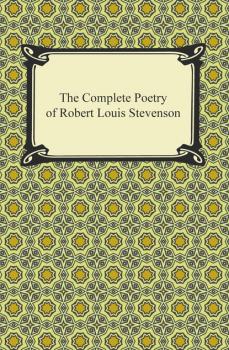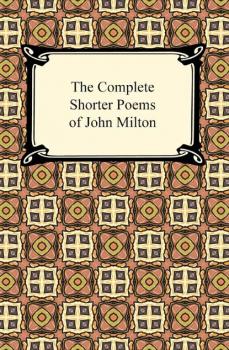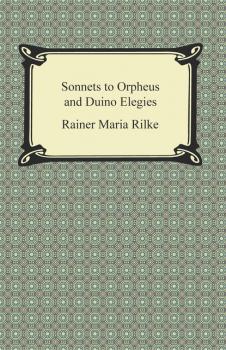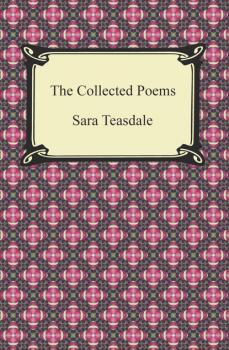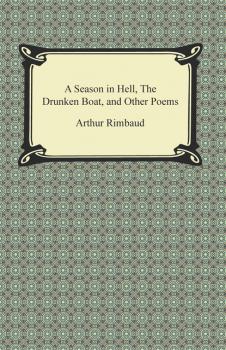ТОП просматриваемых книг сайта:
Зарубежные стихи
Различные книги в жанре Зарубежные стихи, доступные для чтения и скачиванияАннотация
Born and educated in Dublin, Ireland, William Butler Yeats discovered early in his literary career a fascination with Irish folklore and the occult. Later awarded the Nobel Prize for Literature in 1923, Yeats produced a vast collection of stories, songs, and poetry of Ireland's historical and legendary past. These writings helped secure for Yeats recognition as a leading proponent of Irish nationalism and Irish cultural independence. Originally published in two separate books near the end of the nineteenth century, these tales have preserved a rich and charming heritage in a charmingly authentic Irish voice. In this volume, extraordinary characters of Irish myth are brought to life through the brilliant poetic voice of W.B. Yeats. These legendary stories of capricious Trooping Fairies, the frightful Banshee, Kings and Queens, Giants, Devils and the ever popular Leprechaun will delight and entertain readers of all ages.
Аннотация
Robert Louis Stevenson (1850-1894) was a Scottish novelist, poet, essayist and travel writer, whose reputation came primarily from his novels and essays, including «Treasure Island» and «The Strange Case of Dr. Jekyll and Mr. Hyde». He is ranked among the 30 most translated authors in the world, ahead of Oscar Wilde and Edgar Allan Poe. Although his notoriety derives largely from his novels and essays, Stevenson produced a large collection of poetry that has been compared to that of William Ernest Henley and Rudyard Kipling. The principle object of most of his poetry is to capture a moment, be it a memory, an emotion, or some fleeting experience, and to draw his readers wholly into that moment. This is a complete collection of Stevenson's poetry, most of which deals with themes of childhood, friendship, travel, nostalgia and the sea, and includes his well-known «Underwoods» series.
Аннотация
John Milton is most famously remembered for his epic narrative «Paradise Lost» and its sequel «Paradise Regained». In addition to these classic works Milton wrote several shorter pieces. These shorter works are collected together in this volume and include the following: On the Morning of Christ's Nativity; A Paraphrase on Psalm CXIV; Psalm CXXXVI; On the Death of a Fair Infant Dying of a Cough; At a Vacation Exercise in the College, Part Latin, Part English; The Passion; On Shakespeare; On the University Carrier; Another on the Same; An Epitaph on the marchioness of Winchester; On His Being Arrived to the Age of Twenty-Three; L'Allegro; Il Penseroso; Sonnet to the Nightingale; Song on May Morning; On Time; At a Solemn Music; Upon the Circumcision; Arcades; Comus, a Mask; Lycidas; When the Assault was Intended to the City; To a Virtuous Young Lady; To the Lady Margaret Ley; On the Detraction which Followed upon my Writing Certain Treatises; On the Same; On the New Forcers of Conscience under the Long Parliament; To Mr. H. Lawes on His Airs; On the Religious Memory of Mrs. Catherine Thomson, my Christian Friend, deceased Dec. 16, 1646; On the Lord General Fairfax at the Siege of Colchester; To the Lord General Cromwell, on the Proposals of Certain Ministers at the Committee for the Propagation of the Gospel; To Sir Henry Vane the Younger; On the Late Massacre in Piemont; On His Blindness; To Mr. Lawrence; To Cyriack Skinner; To the Same; On his Deceased Wife; Milton’s Introduction to Samson Agonistes; and Samson Agonistes.
Аннотация
The cycle of 55 sonnets that comprise Rainer Maria Rilke's «Sonnets to Orpheus» were written in a period of three weeks during 1922, a time which the poet himself described as a «savage creative storm.» Inspired by the death of his daughter's friend, Wera Knoop, Rilke commenced to the production of «Sonnets to Orpheus,» a work filled with mythological and biblical allusions. During the same burst of creative energy he set to working on the completion of the «Duino Elegies,» a work begun some ten years earlier but set aside due to Rilke's own emotional distress over the tragic events of World War I and his conscription into the Austro-Hungarian army. He wrote in a letter to the deceased girl's mother that Wera's ghost was «commanding and impelling» him to write. The results of this «savage creative storm» are generally considered as Rilke's masterpieces. «Duino Elegies» is an intensely spiritual group of verses that ponders the beauty and existential suffering of life. Together these works exhibit why Rilke is widely recognized as one of the most lyrically intense of all German-language poets.
Аннотация
Born in 1572 in London England, John Donne was an English Jacobean poet of exceptional skill, whose poetry was known for its vibrancy of language and inventiveness of metaphor. While Donne was well educated and his poetic talents considerable he struggled for much of his life to provide for his family. Having published only two volumes during his lifetime, he was not a professional poet. Despite this his legacy on the world of poetry is a significant one. In this volume you will find a representative selection of his «love-poetry», a type of poetry popular in Donne's time. In total seventy-two passionate and erotic poems comprise this volume of «The Love Poems of John Donne».
Аннотация
Welsh-born English poet, orator and Anglican priest George Herbert is one the most famous and popular of the metaphysical poets. The Poetry Foundation has described him as «a pivotal figure: enormously popular, deeply and broadly influential, and arguably the most skillful and important British devotional lyricist.» All of Herbert's surviving poems are religious in nature, characterized by their directness of expression and many of which employ an intricate rhyme scheme. Included in this volume is a complete collection of his poetry and prose writings including the following works: «The Temple,» «The Church Militant,» «Jacula Prudentium,» «A Priest to the Temple,» «Letters of George Herbert,» «The Oration of Master George Herbert,» «Preface and Notes to the Divine Considerations of John Valdesso,» «Notes to the Divine Considerations,» and «A Treatise of Temperance and Sobriety.»
Аннотация
A visionary of eighteen-century English society, William Blake produced a huge collection of poetry, mythology, satires, political pieces, and prophetic works, in addition to his famous etchings and engravings. Although rejected as a madman during his lifetime for claims of hearing voices and later having visions, Blake has achieved notoriety as an innovative and extraordinarily imaginative artist. His poetry varies greatly in style and substance, reflecting the writer's literary development and radical shifts in religious belief. This complete collection of Blake's poetry includes his famous «Songs of Innocence and Songs of Experience,» which exemplify the author's fondness for thematic dichotomies in poems like «The Lamb» and «The Tyger». Also included are «The Four Zoas,» «Milton» and «Jerusalem,» all of which display an extensive use of symbolism derived from Christianity and an elaborate view of Blake's theories on reality and knowledge.
The Collected Poems of Sara Teasdale (Sonnets to Duse and Other Poems, Helen of Troy and Other Poems, Rivers to the Sea, Love Songs, and Flame and Shadow) - Sara Teasdale
Аннотация
Sara Teasdale (1884-1933) became one of the most praised lyric poets of the early twentieth century. In «The Collected Poems,» five of Teasdale's books of poems are brought together, demonstrating her varied output. Teasdale examines love, loss, and death, all with a beautiful lyricism. Her poems range from the traditional to the experimental as she locates and transforms her poetic voice. Born and raised in St. Louis, Teasdale had fragile health until early adulthood. Upon publishing her first book of poems «Sonnets to Duse and Other Poems» (included in this edition), Teasdale experienced critical and commercial success. She moved to New York City in 1916 where she situated herself with the literary and intellectual communities of the day. Her poetic output continued with regularity though Teasdale experienced bouts of depression with increasing frequency. She would later commit suicide at the age of 48.
Аннотация
Arthur Rimbaud's «A Season in Hell» is a prose poem loosely divided into nine parts. In one part of the poem the poet portrays quite transparently his own relationship with French symbolist poet Paul Verlaine. The two had a brief alcohol and drug fueled affair which finally came to end when Verlaine shot Rimbaud in the wrist in a drunken rage. «A Season in Hell,» which has been referred to as a pioneering example of modern symbolism, is included in this collection along with «The Drunken Boat,» a fragmented first-person narrative which vividly describes the drifting and sinking of a boat lost at sea. It is probably the best known work from the representative selection of early poems by the writer presented here in this volume. Also included in this edition is a selection of poems from Rimbaud's masterpiece «Illuminations.» What is most remarkable about Rimbaud's poetry is that it was produced almost entirely between the ages of seventeen and twenty, when Rimbaud would abruptly give up writing entirely in favor of a more steady working life. His writing he contended was a product of his reckless lifestyle to which he was resolved to abandon.
Аннотация
Roman poet, satirist and dramatist Horace was born in southern Italy in 65 b.c.e. Uncommonly for one born to poor parents, Horace studied literature and philosophy in Athens until he became a staff officer in Brutus' army, where he served as a military tribune until the army was defeated in 42 b.c.e. He soon returned to Rome, purchased the post of scribe, and it was here that he began writing verse and struck up a friendship with the poet Virgil. Horace was praised for his reinterpretations of earlier Greek and Latin literary works, and his immeasurable influence on modern poetry cannot be overlooked. This collection contains Horace's «Odes»: sentimental reflections on life and commonplace themes; «Epodes»: in which he describes his personal dislikes; «Satires»: in which Horace good-humoredly reflects on flaws of humanity; «Epistles»: informal moral essays that display the genius of Horace; and finally «The Art of Poetry»: a dictum on literary composition.

